Happy Sunday, everyone. When this post goes up I’ll likely be at, or soon on my way to, the wedding of a good friend in Albuquerque, NM. It’s a really quick trip for us–there and back in two days–but I’m so glad that I can be there to help my friend celebrate her marriage.
There are some nerves, too. This summer I’ve indulged my introvert tendencies quite a bit more than usual. This is one of my responses to depression and anxiety, and in spite of the fact that it could be seen as a form of self-isolation, it really does feel more like self-care. Or simply doing what I have to do to cope with where I am. I’d hesitate to say that group socializing is always a challenge for me, but it’s always draining, and now more than ever. Knowing this, respecting this, and allowing myself to keep the tank full, as it were, feels important.
For a while even intimate socializing felt difficult. How to respond to the question of “how are you?” or “what’s new?” I’m still not sure what to say to this; I don’t have a quick answer that doesn’t feel dishonest. I suppose it’s all an exercise in having the courage to speak truthfully: I don’t always describe to people precisely what’s been going on, but I don’t give an automatic response of “I’m good!” either.
I’ve been surprised, at times, at how certain relationships feel like safe spaces to talk about depression and others don’t. In the last few months, a small number of friendships and correspondences have deepened immeasurably because I’ve been able to confide about my experience and be heard and acknowledged without judgment. Writing about depression has even compelled certain friends–some close by, others remote or “virtual” (a word that does not, I think, do justice to the friendships that form through online interaction) to confide in me about what they’ve gone through, and I feel so lucky to receive their stories and hear their insights.
I guess all this is to say that–having spent most of last year totally shut off–I’m opening up again. But I’m doing so carefully, with respect for my own boundaries, and with the sincere intention to be honest about where I am without feeling any pressure to overshare. It’s a balancing act.
Back to today. It’s been a while since I faced a large social gathering, and of course it’s bringing up some vulnerability. I’m having odd, jittery thoughts: will I seem different to people? I feel different than I did a year ago, so why wouldn’t I seem that way outwardly? Will I be less pleasing to old friends than I used to be–less entertaining, or less fun, or less lively? What will it be like to step outside the zone of safety that I’ve carefully created for myself in the last couple months?
Who knows. What I’m telling myself is that true friendships can withstand growth and change–even growth that’s taken the shape of sadness or struggle. And while groups can be daunting, they can be energizing, too–especially when they’ve convened for the sake of celebrating something loving and joyous.
If nothing else, I can delight in Steven’s dance moves 🙂
The last article I link to today has actually been very helpful. It’s a wonderfully vulnerable meditation on what it means to preserve and respect one’s own identity while also sharing and connecting with peers, and I hope you’ll love it as much as I do, along with all of the other recipes and reads I’m sharing this week.
Recipes
It’s corn season in the northeast, and I just love Sarah’s vegan roasted poblano corn chowder. It looks so hearty, sweet, and creamy — can’t wait to try it with a slice of vegan cornbread.
Just in time for fall, Lisa has created a lovely vegan granola recipe featuring ancient grains. I love how she uses Earth Balance in the recipe–I’m giving that gives it a really intriguing hint of buttery flavor.
I really like the idea of pairing cauliflower rice with the hearty components of a black bean burrito bowl, and that’s exactly what Karen has done with these flavorful (and colorful!) bowls. The components of the bowl are each quite simple and easy to prepare, which is always a bonus.
I made white bean “kale-sadillas” earlier this year, and I really loved them, so I’m super excited to find a new recipe approach to try. Alissa’s white bean quesadillas include creamy avocado, which I’m sure is a wonderful way of re-creating the traditional cheesy element, and they look super comforting and flavorful.
Jackie’s vegan apple pie cinnamon cupcakes are fun, playful, and the perfect way to celebrate fall. It’s hard to say whether I’m more excited about the vegan buttercream frosting or the warm apple pie filling (which is really a topping in this recipe). And I like Jackie’s smart, honest thoughts on finding balance after a year of big change (speaking of that, her new cookbook is pretty awesome).
Reads
1. First, exceptional reporting on bad science and the courageous individuals who protested it. Writer Julie Rehmeyer describes how she and others who suffer from Chronic Fatigue Syndrome (nowadays also called ME/CFS) first challenged, and are now working to rectify, the PACE Study, a 2011 study that suggests that exercise and psychotherapy can give ME/CFS patients a 60% change of improvement and a 20% chance of full recovery. The study was robust, controlled, and peer-reviewed–the hallmarks of good science. The problem with it was (and is) that so many individuals who actually suffer from ME/CFS felt intuitively that the advice was wrong.
Instead, they felt that increased physical exertion could markedly worsen their symptoms. Rehmeyer writes,
. . . patients like me were immediately skeptical, because the results contradicted the fundamental experience of our illness: The hallmark of ME/CFS is that even mild exertion can increase all the other symptoms of the disease, including not just profound fatigue but also cognitive deficits, difficulties with blood pressure regulation, unrestorative sleep, and neurological and immune dysfunction, among others.
Soon after I was diagnosed in 2006, I figured out that I had to rest the moment I thought, “I’m a little tired.” Otherwise, I would likely be semi-paralyzed and barely able to walk the next day.
The researchers argued that patients like me, who felt sicker after exercise, simply hadn’t built their activity up carefully enough. Start low, build slowly but steadily, and get professional guidance, they advised. But I’d seen how swimming for five minutes could sometimes leave me bedbound, even if I’d swum for 10 minutes without difficulty the day before. Instead of trying to continually increase my exercise, I’d learned to focus on staying within my ever-changing limits — an approach the researchers said was all wrong.
Rehmeyer chronicles the work of David Tuller, a public health lecturer at Berkeley who has worked to expose flaws in the study. Yet, as she makes clear, efforts toward revision cannot necessarily repair the discouragement and bad treatment that may have already befallen ME/CFS patients who took the study’s findings to heart. The likelihood of psychotherapy and exercise improving disease outcomes may be relatively small after all, which means that new research and new treatment options are urgently needed.
Rehmeyer concludes,
Watching the PACE trial saga has left me both more wary of science and more in love with it. Its misuse has inflicted damage on millions of ME/CFS patients around the world, by promoting ineffectual and possibly harmful treatments and by feeding the idea that the illness is largely psychological. At the same time, science has been the essential tool to repair the problem.
But we shouldn’t take solace in the comforting notion that science is self-correcting. Many people, including many very sick people, had to invest immense effort and withstand vitriol to use science to correct these mistakes. And even that might not have been enough without Tuller’s rather heroic investigation. We do not currently have a sustainable, reliable method of overturning flawed research.
As a nutrition student, I’m constantly reading studies. And as someone who didn’t play close enough attention to evidence when I first got into nutrition–to my own detriment–I tend to approach research findings with perhaps a little too much immediate credulity. It’s important for me (and all of us who study health sciences) to remember that science is not foolproof, and that we are always doing our best to reassess and better understand our own body of evidence.
This article also reminds me that, as a health practitioner and counselor, my first responsibility is always to respect my client’s own account of illness or struggle. I can bring research to bear on my work, use it to inform my guidance, and so on. But when a person insists that some part of their lived experience of an illness is true–regardless of whether or not research aligns–it’s my job to listen, and listen closely.
2. Another article that touches on the complications of health science research: Andy Bellatti’s smart response to the “wars” that pit sugar and meat against each other as monolithic causes of obesity and Type II Diabetes. As Bellatti notes, it’s tempting to try to isolate a single culprit for complex diseases:
Somewhere along the way, the nutrition field fell prey to the notion that, when it comes to the negative health effects of red meat and sugar, you can only hold one responsible for all our public health problems. It’s a seductive binary; both camps come with built-in fervent believers. Dietary tribalism is profitable; it’s how “diet gurus” are made. The general public is enamored with the idea that the road to health is obstructed by one big villain.
When it comes to nutrition, it’s usually the case that dietary patterns are more determinative than single nutrients or foods, and to whatever extent particular foods are detrimental, they’re probably acting in concert with other, problematic foods or food groups. It’s important to examine things macroscopically, to identify patterns and parallels–which is precisely what Bellatti proceeds to do, pointing out all of the ways that refined sugar and red meat are similar (low in fiber, low in phytonutrients, with a tendency to “crowd out” beneficial whole grains, legumes, and plant foods in peoples’ diets).
He concludes with a plea that we try to resist binary thinking when it comes to nutrition research–not always an easy thing to do, but probably the way of thinking that can bring us closer to nuanced understanding of these issues:
Part of the complexity of nutrition involves the acceptance of multiple truths. A call for a reduction in red meat should not automatically be equated with a recommendation that Americans load up on fat-free cookies, white bread, and sugary cereal. Similarly, voicing concerns about added sugar does not mean someone is a ferocious advocate of low-carb living who thinks bacon is a health food and brown rice is no different than a Pop-Tart.
3. Nothing about this op-ed–an emergency physician’s thoughts on how to tell a mother that her child has died–is easy to read. But, having not been sure what to expect when I first read the title, I was was really moved by its compassion. It strikes me as an honest, humble attempt to articulate what must feel like an unbearable dialog for empathetic healthcare providers.
4. I’ve often heard it said that eating disorders are family diseases. I’m not sure how much this echoes my own experience, but I understand what the comment is suggesting, and I imagine it might feel truer in bigger families than mine.
Bee Wilson’s reminiscences on her sister’s anorexia are candid and truly heart-wrenching, a vivid reminder that, if nothing else, eating disorders are felt and experienced not only by the person who is suffering, but also by the people who love him or her. Wilson describes how her sister’s ED fractured the communion they’d always shared around food, and she goes on to chronicle how the anorexia actually contributed to her own struggles with overeating and chronic dieting:
When one person at the table radically changes the way they eat, the whole ecosystem of a family has to adjust. A meal is not the same thing when it is not shared. I wish I had understood better as a teenager how entangled eating behaviour between siblings was. My sister wasn’t to blame for my problems with eating; but it was only when she became ill that it was obvious how much my apparently robust appetite took its cue from her.
It is so true–at least in my experience–that meals are not the same when they are not shared, and I had a little shudder of sadness when I read that line. I’ve blocked out a lot of my memories of meals at home during my early bout of anorexia, but I do remember how they drove discomfort and silence between me and my mom (to some extent, between me and grandmother as well); what had previously been a rite of communion and sharing became fraught and tense.
During my later relapses, I often avoided partaking in shared meals at all. I knew on some level that to gather at a table and not share the experience of food was far lonelier than eating alone; at least when I was alone, I had my rituals to keep me company. There are not many things I “regret” about anorexia–I see pretty much all of it as part of an experience that shaped who I am today–but I do mourn the things I didn’t do because of it, the meals I didn’t partake in, the experiences I never had.
Fortunately, Bee Wilson has had her own recovery, and she describes what recovery means to her so succinctly and beautifully:
I never dreamed I would reach the point where I would be free of the nagging voice in my head telling me that I was disgusting because I had eaten pudding. Still less did I think I could choose what to eat based on my own desires, rather than what another female at the table was eating. At last, my appetite was my own.
5. Finally, some marvelous and unusual meditations on the idea of autonomy. Autonomy, I think, is often understood as self-sufficiency, and that’s one way of looking at it. Author Kaley Mamo examines autonomy through a different lens, describing it as a capacity to inhabit one’s own identity without being overly aware of how it compares to the identities and actions of others. She describes her struggles with this particular brand of autonomy so well:
It had been a struggle for my sophomore self, always feeling like I should be somewhere else or doing something else—something that never even crossed my mind. It wasn’t peer pressure, per se—I certainly enjoyed my fair share of the typical high school escapades—but something more. It was as if I was constantly checking over my shoulder to see everyone else’s lives, looking at their Instagram posts with a magnifying glass to see how mine compared.
I think that anyone who has survived adolescence knows exactly what Mamo means; it’s that sense of constant concern with one’s difference of similarity to others (I suspect, by they way, that being a young adult in a world with social media has heightened this feeling). But she’s able to articulate it with rare insight:
Sometimes it all lined up, and I could let out a relieved exhale. For the moment, I was in the in-crowd, my social and academic life up to par with that fake checklist of milestones I had made to mark my growth as a successful high school student. But other times, I was left in the dust. It was as if I had gone adrift, too focused on memorizing the film credits of my favorite directors to notice that everyone else had moved on. It was at those times when I realized how truly alone I was—not in the lonely way, but in the factual way—and that no matter how hard I tried to compartmentalize my peers’ lives, we were all just floating along, trying to make sense of ourselves in the context of others.
Recognition of our aloneness, I think, can ironically serve to help ease whatever dissonance we feel about being out-of-step with others. Acknowledgment that we’re all alone in a very real way– navigating our life as only we can–can actually help us to understand that we don’t have to feel or see what everyone else does. There are ways to connect that don’t need to hinge on comparison or the feeling that we ought to experience what others do, in the same way that they do.
This is a conclusion that Mamo seems to make in her own, very articulate way. The first step, she writes,
. . . is to learn to like myself for my current form and to shape myself to be someone I’ll respect in the future. That means cultivating my interests and hobbies: writing, watching movies, listening to indie folk, drinking three cups of coffee a day, taking mediocre pictures with my new camera, memorizing the film credits of my favorite directors—all without thinking about the perceived reactions of my peers. It means not worrying about events I’m not going to and simply looking forward to the ones that are on my calendar. It means using this summer to craft myself without the gaze of classmates in the hallway and, more importantly, without my own inner critic constantly comparing myself to others.
“To learn to like myself for my current form and to shape myself to be someone I’ll respect in the future.” It’s a goal that has value, I think, for everyone. And the fact that Mamo’s figuring this out at the tender age of 15 (yup, she’s a rising high school junior), and then putting it beautifully into words, is pretty cool.
With these inspiring thoughts, I wish you a wonderful Sunday.
xo
You might also like
Good morning, everyone, and happy Saturday. I hope that those of you who celebrated yesterday had a lovely holiday. I woke up this morning and realized with a smile that in spite of the fact that I’m 33, I’ve retained my childhood tendency to wake up melancholy on December 26th. There’s something so wistful about watching the holiday season pass by, even if the holidays tend to bring up a lot of complex emotions for many of us. I try to see the melancholy as…
I’ve been thinking a lot about taking responsibility lately. For the past few weeks, the process of slowly and patiently taking care of my responsibilities—academic, personal, business, financial, and the tiny tasks and duties associated with everyday living—have been a big part of staying healthy and engaged as I weather a patch of depression. It’s not about keeping busy, which has been my way of trying to outrun sadness in the past. It’s about reminding myself of my own capability and efficacy, proving…
I often read about the power of choosing one’s thoughts, or something along those lines: shifting perspective, flipping the script, quieting negative self-talk, and so on. It sounds so compelling and empowering, yet so elusive. Most of the time, I feel that my thoughts choose me. I often wish—especially when they’re particularly exhausting—that they’d choose someone else. Once in a while, I’m able to choose different thoughts, or to change a gloomy perspective. The amount of effort that it takes to do this…
Happy weekend, everyone! I hope you’ve been enjoying some restful time and sunny weather. I’ve had a busy weekend so far; last night, I had the honor of teaching a vegan cooking class at Haven’s Kitchen here in New York. It’s a beautiful space, and it allows for cooking classes of intimate groups (my class had ten students). We got to know each other, cooked five recipes from Food52 Vegan, and then sat down to a late dinner, so that we could enjoy the recipes…


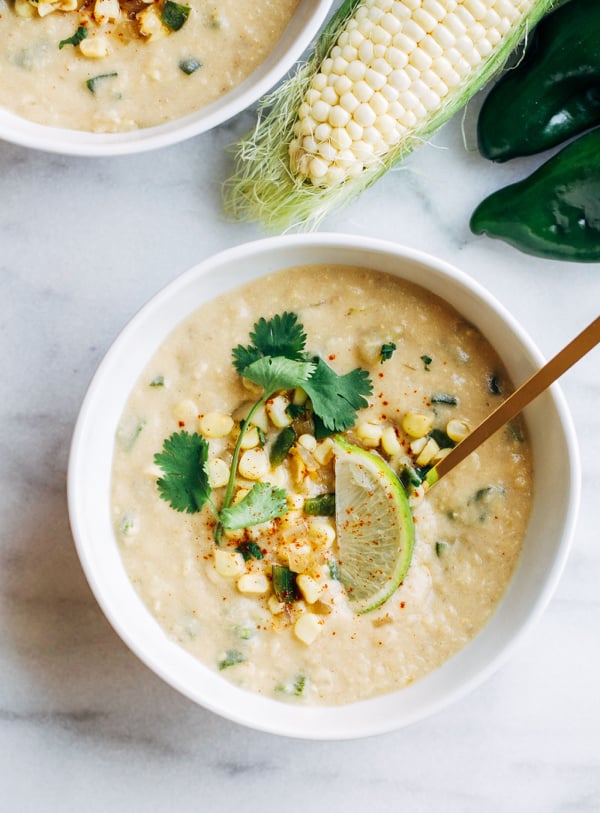
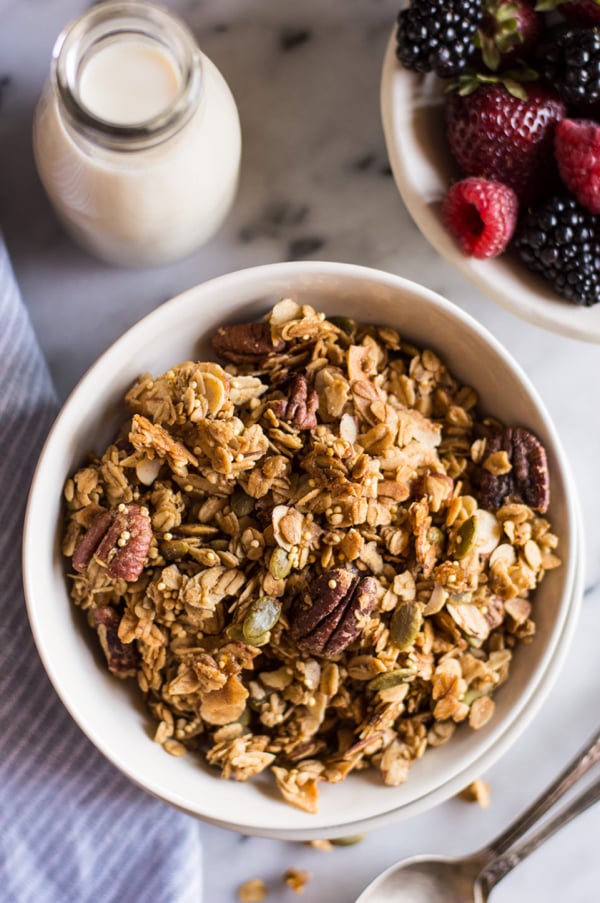
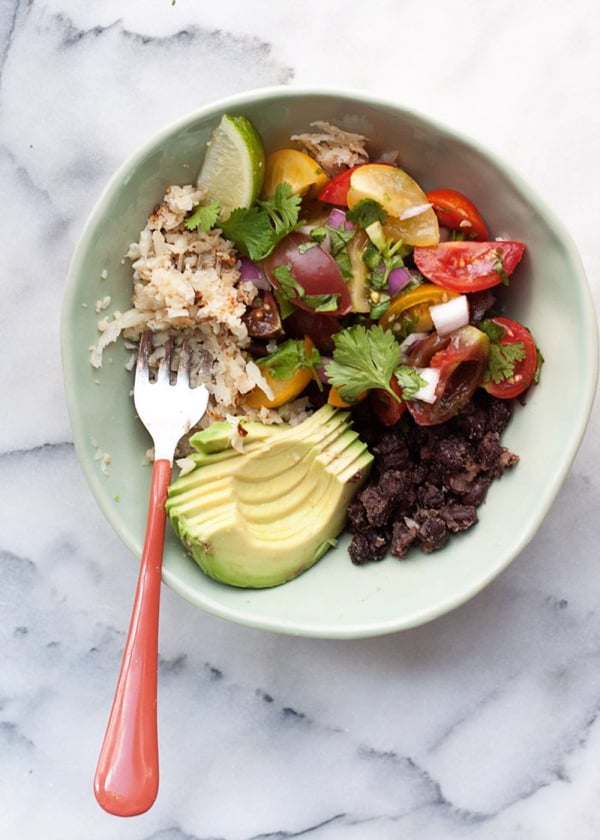
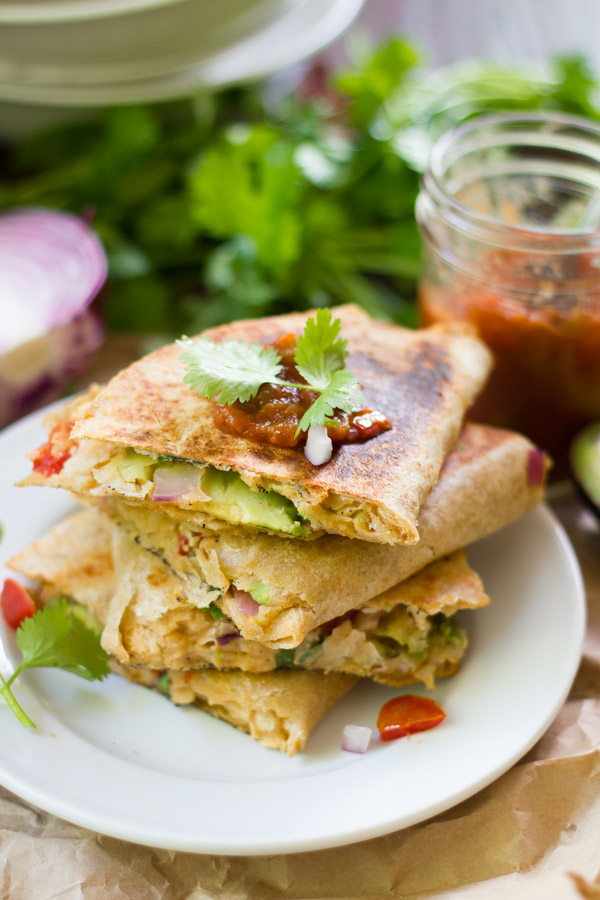
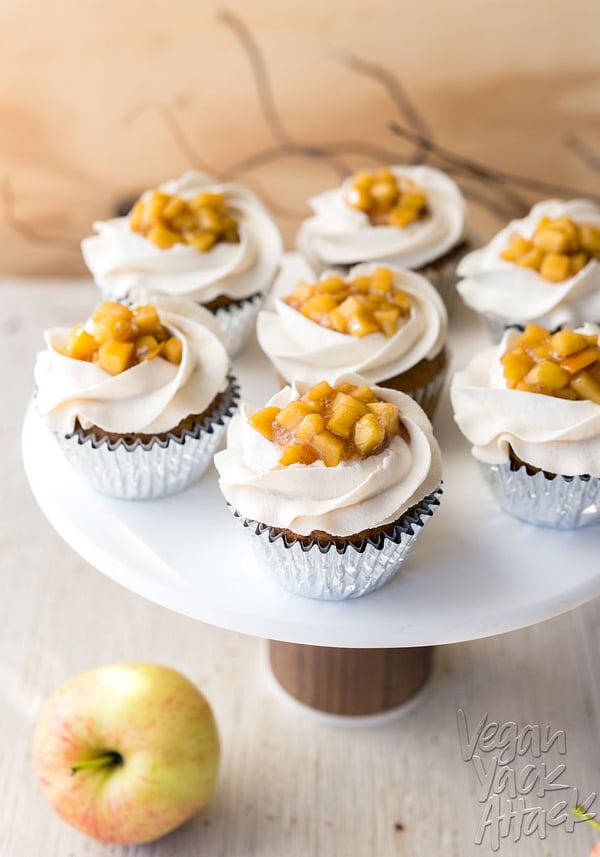
Leave a Comment
Oh my gosh this week’s collection is utterly breathtaking.
“I’m having odd, jittery thoughts: will I seem different to people? I feel different than I did a year ago, so why wouldn’t I seem that way outwardly? Will I be less pleasing to old friends than I used to be–less entertaining, or less fun, or less lively?” <– this sums up so much of my anxieties about travelling and interacting with colleagues, etc since getting sick. And yet I've found the truest friends nothing has really changed. Our #1 priority is still loving on each other and encouraging the other to love themselves. While in the past that may have looked like ridiculous drunken nights, now (for one example) it means her coaching me through killer cramps while I'm hunched over doing sounding breaths in the middle of a Philly sidewalk and me STFU when her concussed brain needs a break. And lots of cuddles in between. <3
"This article also reminds me that, as a health practitioner and counselor, my first responsibility is always to respect my client’s own account of illness or struggle. I can bring research to bear on my work, use it to inform my guidance, and so on. But when a person insists that some part of their lived experience of an illness is true–regardless of whether or not research aligns–it’s my job to listen, and listen closely." <–For the record – you do this really really fucking well. Thank you.
"He concludes with a plea that we try to resist binary thinking when it comes to nutrition research–not always an easy thing to do, but probably the way of thinking that can bring us closer to nuanced understanding of these issues." <–FUCK ALL THE BINARIES.
"Acknowledgment that we’re all alone in a very real way– navigating our life as only we can–can actually help us to understand that we don’t have to feel or see what everyone else does. There are ways to connect that don’t need to hinge on comparison or the feeling that we ought to experience what others do, in the same way that they do." <–I was considering this on the train yesterday & today. I wanted to film an instagram story but felt embarrassed b/c the train was nearly empty and what would people think and then so-and-so would just do it and…spiral. Excited to bookmark this one for several rereads.
xoxo
I look forward to these posts every week–first for the variety in the round up of articles, now for the added bonus of your introspective writing and sharing that always resonates in many ways.
That said:
1. I hope you enjoy(ed) your time in ABQ! My home state! 🙂 This is a great time to go.
2. I’m feeling very similar feels about having “indulged” my introversion more and more this summer, as I adjust to working remotely. My trips back to SF are exciting, but come with a little layer of anxiety now about how my day will feel so different and my routine is not in its comfort zone (nor is it nearly as flexible). I’m leaving tomorrow for a few days there, and I know it will be great but I’m also a little sad to “have” to go. So, thanks for the reminder that this is a thing for introverts. 🙂
Another wonderful weekend post, Gena. I have a volatile relationship with social interactions and have to practice to find the good in each. It’s this mindfulness that gets me out the door and not hiding out in the Hills. Thank you for honesty. Again. We are all social creatures here, in our own way. Lovely recipes.
Are you still with your boyfriend/main squeeze?!
I hope he was and is able to be with you during hard times <3
BIG HUGS!
Gena, I so appreciate your willingness to open up about your struggles. I know this doesn’t mean much, but I’m always here to listen if you need someone to talk to! Big hugs to you, and I hope you had a good time in Albuquerque. (And thanks for featuring my granola! )
Dear Gena, I have had a VERY full weekend of negotiating complicated arrangements and changes, but I had to stop in here because I am really beginning to look forward to your intro to weekend reading, and this one was no exception. So lovely to read more of your process as you got ready to go and be social in New Mexico–a wedding in the land of enchantment–and Steven’s dance moves!! That made me giggle. But seriously, once again your honesty about such things is so powerful and I’m sure rings true not only for me but many of your readers. I enjoyed the excerpts from the last article and smiled to find that I, too, at 60, can testify that the work of autonomy is an ongoing process throughout life. I had many people giving me feedback about how to best transport a Silken I am adopting from Texas to the Northwest today, and I had to pick an option that not all my helpers would have picked. It gets easier to see the issue as one gets older, but the issue is still there. I think you just learn to recognize how it feels when standing in one’s own autonomy. On the food front, I loved being reminded of the kalesidias 🙂 Time for bed, but hopefully I’ll get to give the articles more time in the morning. I once wrote a poem titled “Wherever You Are Is Perfect”–about the theme you wrestled with in this post–just remember that where ever you are, you are perfect, too. New Mexico is lucky to have you for a couple of days. xo
This is such an exceptional round up of weekend reading (as usual). I find myself especially relating to the last piece you spoke of. Thank you so much for including my cupcakes and sending be his to you! <3
Big hugs* rather! 😉